Cultivating Young Minds: The Power of Philosophical Thinking in Early Childhood
Every day, in preschool classrooms and homes around the globe, educators and caregivers work to nurture children’s growth across multiple domains—physical, cognitive, social, and emotional. Yet there’s another dimension of development that often goes unrecognized: the emergence of the philosophical mind. This is the part of a child that ponders life’s mysteries, questions assumptions, and reflects on fundamental aspects of existence. Embracing and encouraging this aspect of development isn’t just possible—it can be transformative for both children and adults.
Jana Mohr Lone, who leads the Philosophy Learning and Teaching Organization (PLATO), captures this perfectly when she notes that humans possess a unique “ability to think in the abstract—to be conscious of what we do, say, and think as we are doing, saying, and thinking.” This capacity, she emphasizes, forms the cornerstone of the philosophical self. Even very young children are capable of profound thinking about their experiences, constructing meaning from the world around them, and making valuable contributions to philosophical dialogue.
How AI is Creating a More Human Future for Education
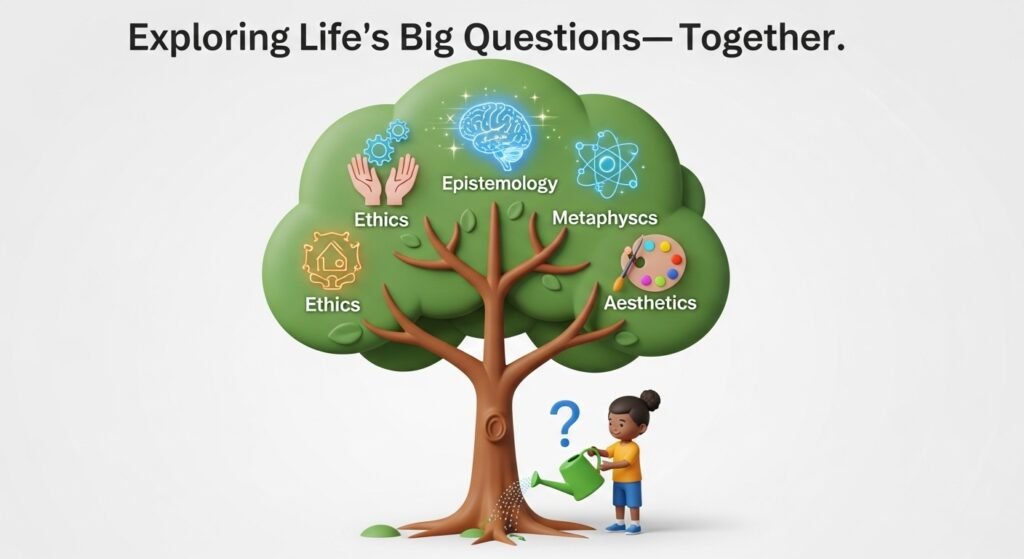
Creating Space for Big Questions
Research conducted by Mohr Lone and her team reveals that children naturally explore questions that align with traditional branches of philosophy—completely unprompted. These explorations provide perfect entry points for educators to foster philosophical engagement.
Consider these examples from different philosophical domains:
- Ethics: Children frequently ponder how to treat others and the consequences of their actions. Questions like “How should we treat someone who took our toy?” or “Why is it important to share?” demonstrate early ethical reasoning.
- Epistemology: Young learners often show fascination with how we know what we know. Queries such as “How do I know this is real?” or “Why do I remember some things and forget others?” reveal their natural engagement with epistemological questions.
- Metaphysics: Preschoolers regularly grapple with the nature of reality itself. Questions about what makes something real, or why things exist as they do, show their capacity for metaphysical thinking.
- Aesthetics: Children constantly make judgments about beauty, art, and sensory experiences. Statements like “That’s the most beautiful butterfly I’ve ever seen” or “I don’t like how that music feels” open doors to discussions about aesthetic values.
The goal of philosophical exploration with children isn’t about finding right answers—it’s about cultivating wonder, encouraging multiple perspectives, and developing the ability to think critically about important questions.
Valuing Children’s Philosophical Capacities
Creating a culture of philosophical inquiry requires that we recognize children as capable thinkers and meaning-makers. Mohr Lone identifies a common problem she calls “epistemic injustice”—the tendency to dismiss someone’s capacity as a knower based on their social identity, including age.
We can counter this tendency by:
- Showing genuine interest in children’s questions
- Taking their ideas seriously without dismissal
- Avoiding patronizing language or responses
- Creating space for their contributions to conversations
When we treat children as authentic partners in inquiry, we not only support their philosophical development but also model important values like respect, openness, and intellectual curiosity.
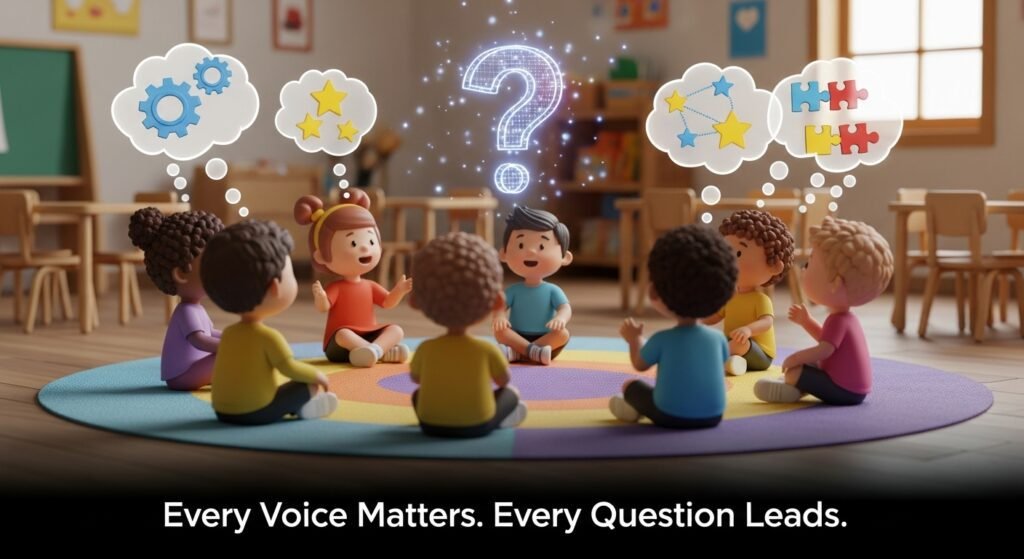
Practical Strategies for Philosophical Engagement
Transforming everyday moments into opportunities for philosophical exploration requires intentional practices. Here are some approaches that educators can use:
1. Questioning Techniques
Open-ended questions that begin with “I wonder…” or “What do you think about…” create space for philosophical conversation. These invitations to think show children that their perspectives are valued.
2. Dialogic Reading
When reading stories together, pause to ask philosophical questions about characters’ choices, moral dilemmas, or alternative outcomes. This helps children connect philosophical thinking to narrative contexts.
3. Documentation and Reflection
Recording children’s questions and ideas demonstrates that their philosophical contributions matter. Returning to these documented conversations shows children that their thinking is valuable and worth revisiting.
4. Creating a Community of Inquiry
Establishing classroom norms for respectful dialogue helps create an environment where children feel safe sharing their ideas and questions. Guidelines might include listening carefully to others, building on each other’s ideas, and being open to changing one’s mind.
15 Free Online Certification Courses to Boost Your Career in 2025
The Practice of Collaborative Inquiry
One powerful approach involves what educator Ann Pelo describes as viewing conversations with children as “incubators for thinking.” This means embracing the role of co-inquirer rather than expert, and being willing to explore questions alongside children without predetermined answers.
Some helpful conversation starters include:
- “That’s an interesting idea—can you tell me more about that?”
- “I never thought about it that way before—what made you think of that?”
- “How do you think we might figure that out?”
- “What would happen if…?”
Adding “I wonder” to the beginning of questions is particularly effective, as it positions the adult as a fellow explorer rather than someone who has all the answers.
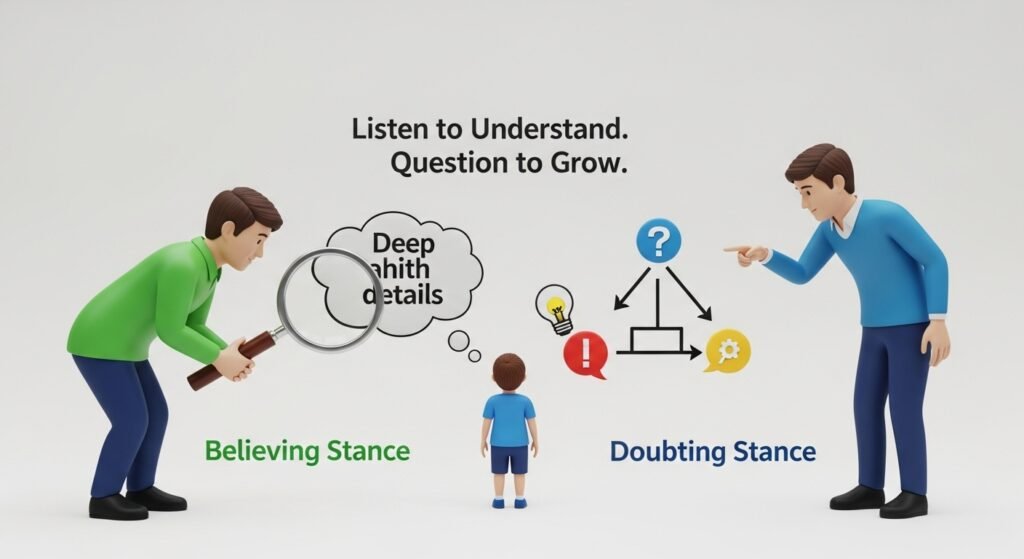
Doubting and Believing: A Balanced Approach
A particularly effective method for engaging with children’s ideas involves what scholar Peter Elbow calls “doubting and believing.” This approach involves two complementary stances:
- The believing stance involves listening to understand, seeking to fully appreciate a child’s perspective without immediate judgment. We temporarily set aside our own assumptions to truly hear what the child is expressing.
- The doubting stance involves thoughtful questioning that helps children develop their ideas more fully. This isn’t about proving them wrong, but about helping them strengthen their thinking by considering alternative perspectives or potential inconsistencies.
In practice, this might look like a teacher asking follow-up questions that help a child elaborate on their theory about where memories go when we forget them, or how we know whether something is real or pretend.
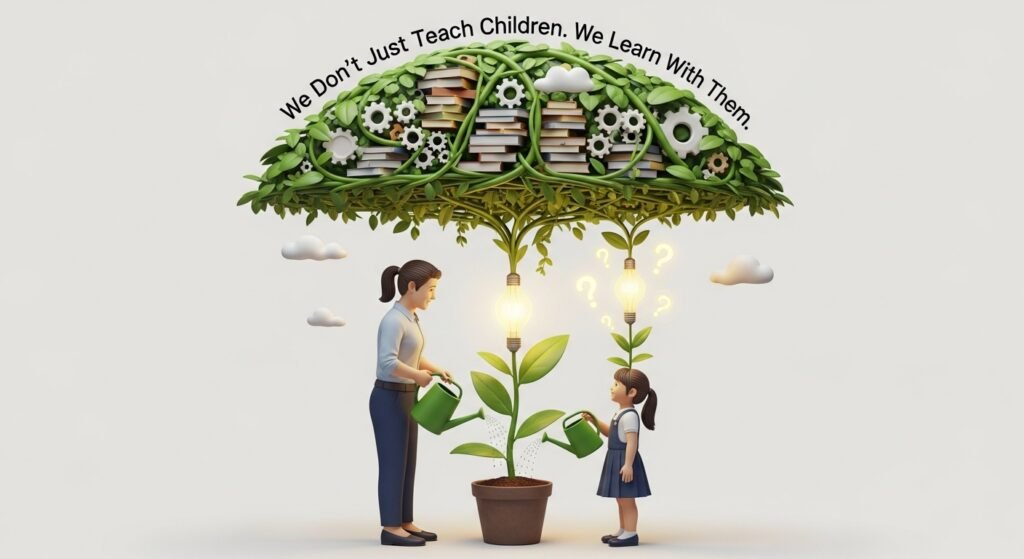
Growing Together Through Philosophical Practice
Perhaps the most beautiful aspect of engaging in philosophical inquiry with young children is the mutual growth that occurs. When we take children’s ideas seriously, we often find our own perspectives challenged and enriched. Children frequently ask questions that adults have stopped asking, and their fresh ways of looking at the world can reawaken our own sense of wonder.
Philosophical inquiry becomes a vibrant thread in the fabric of classroom community, weaving together critical thinking, empathy, and intellectual curiosity. By slowing down to listen deeply and wonder together, educators and children alike can discover the extraordinary within ordinary moments.
Complete Guide to Student Loans USA – Student Finance USA
This approach honors children not merely as learners who need to acquire information, but as thinkers, meaning-makers, and valuable contributors to our shared understanding of the world. In doing so, we create educational environments that nurture not just skills and knowledge, but the development of thoughtful, engaged human beings.

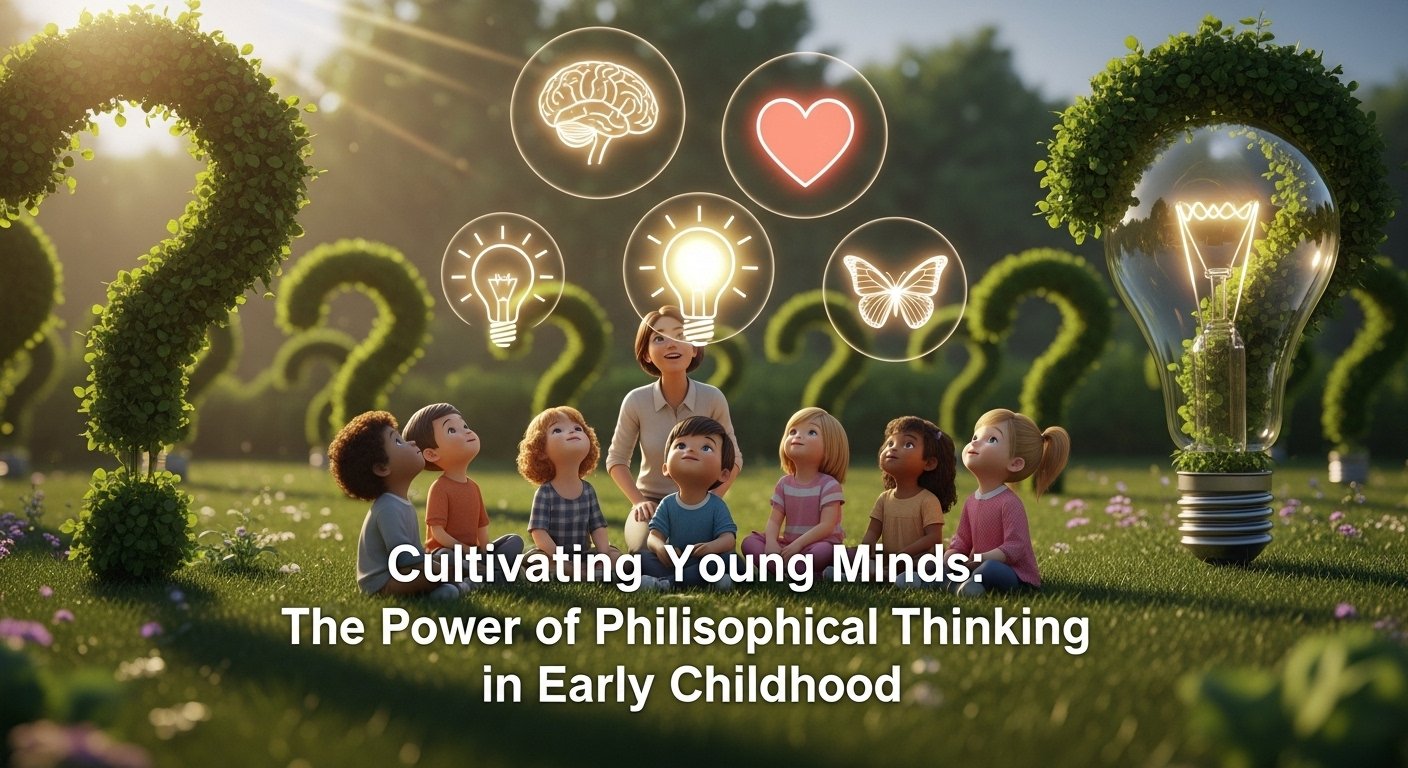


Pingback: Warm Demander Teachers: Empowering Student Growth - PaidScripts -Tech Education Hub: Courses & Student Resources